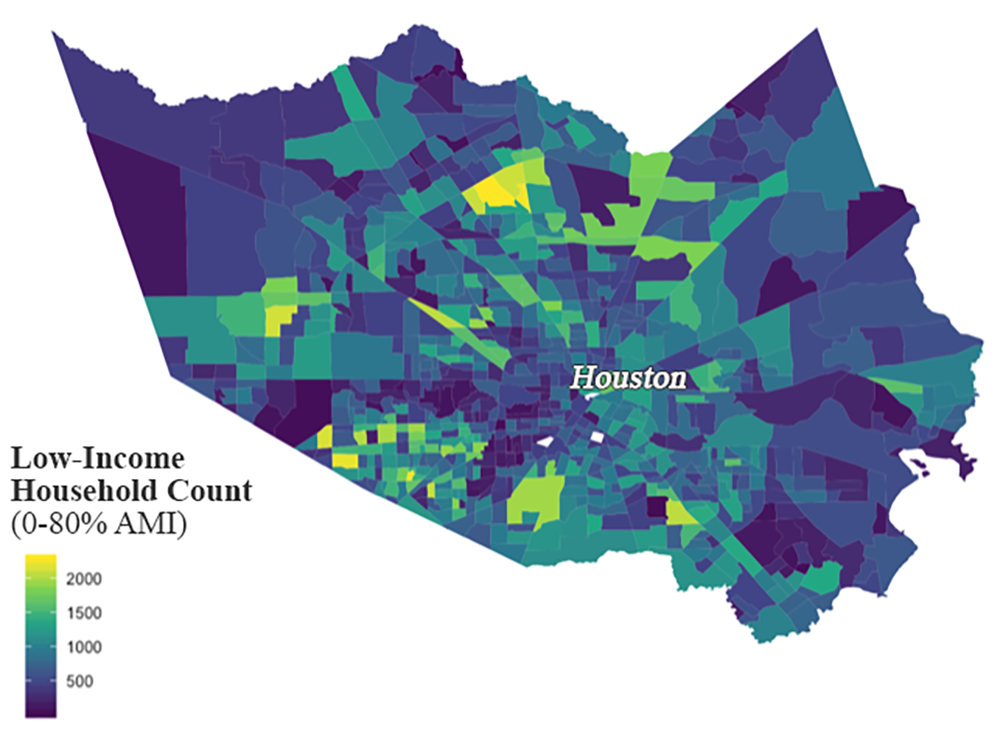Abstract:
Distributed Energy Resources (DERs) can offer financial, environmental, and resiliency benefits to our society. Vulnerable communities, for whom these benefits can be most impactful, often face barriers to access, including awareness, financial limitations, and housing conditions.
The Texas Energy Poverty Research Institute (TEPRI) leads the Pathways for DERs to Reduce Energy Burdens initiative to develop a roadmap for cost-efficient, inclusive, and effective pathways for rooftop solar and energy efficiency deployment in residential buildings located in low-income census tracks — with the goal of reducing the energy burden of residents. This analysis and stakeholder engagement initiative is initially focused on Harris County (Houston), Texas, (with 600,000 low-income households, 65% of whom are people of color) with the intent of expanding to other Texas regions.
The project involves a synthesis and analysis of existing literature and data, that includes both publicly available and proprietary datasets, to develop a clear understanding of the Energy Affordability Gap (EAG) and the energy efficiency and rooftop solar potential of the existing affordable housing stock. This project also involves stakeholder meetings in Houston with local community organizations, researchers, energy providers, and local leadership to identify barriers and co-develop solutions specific to Harris County, opportunities to leverage funding sources, and alignment with the City of Houston Climate Action Plan.
The most immediate action to reduce the EAG is to target energy efficiency measures in single family homes in geographical areas with high concentrations of low-income households. Furthermore, we encourage the development of community relationships to improve the implementation of weatherization programs among low-income communities.
